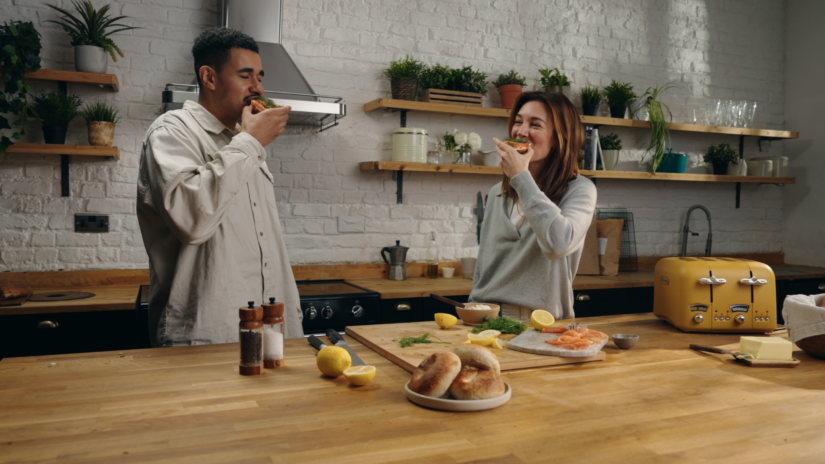“Breaking Bread” for a longer life

In today’s world of health-conscious eating, bread often gets a bad reputation. But in the world’s Blue Zones, regions where people live the longest, healthiest lives, bread isn’t just eaten, it’s shared. Could the way we eat, rather than just what we eat, be a key to longevity?
The origins of ‘Breaking Bread’
Historically, people tore bread rather than slicing it, and this is one reason why the expression ‘breaking bread’ exists. Before the invention of knives or the widespread use of slicing tools, loaves of bread were often large and unsliced. People would break the bread by hand, tearing off chunks to share with others. This act of tearing, or “breaking,” was not just practical but also symbolic. It represented sharing and community, which is why the phrase has come to signify coming together, particularly for a meal.
In religious traditions, especially in Christianity, the act of breaking bread carries spiritual significance, representing unity and hospitality – a gesture of sharing not just food but a sense of connection.
So, while you may cut bread today, the tradition of breaking it harks back to a time when tearing was the norm, and it has since evolved into a meaningful expression of togetherness.
What are the blue zones?
The Blue Zones are five regions where people frequently live to 100 years old and beyond. These include:
- Ikaria, Greece
- Sardinia, Italy
- Okinawa, Japan
- Nicoya, Costa Rica
- Loma Linda, California
While their diets vary, a common theme is eating whole, natural foods. In Mediterranean Blue Zones like Ikaria and Sardinia, that includes traditional, fibre-rich bread. But their longevity isn’t just about the food itself, it’s also about how and who they eat it with.
Bread as a shared experience
In Mediterranean cultures, bread is rarely eaten alone. It’s part of a shared meal, a ritual of connection, and an act of community. Whether it’s a loaf of sourdough torn at the table or fresh pita dipped in olive oil, bread represents hospitality, friendship, and togetherness.
Research suggests that eating with others can improve digestion, reduce stress, and even contribute to a longer life. In contrast, eating in isolation, especially while distracted, can lead to overeating, poor digestion, and a weaker sense of community.
The right kind of bread matters
Not all bread is created equal. The bread in Blue Zones is minimally processed, made from whole grains, and often fermented (like sourdough), making it easier to digest and richer in nutrients. Unlike mass-produced white bread, traditional breads are high in fibre, B vitamins, and beneficial bacteria that support gut health.
More than just a meal
The Mediterranean diet is often praised for what people eat, such as olive oil, legumes, and fresh vegetables, but just as important is how they eat. Slow, mindful meals, shared with friends and family, are just as vital to health as the food itself.
So, does eating bread make you live longer? Maybe, but sharing it certainly might. Next time you break bread, take a moment to savour not just the taste, but the experience, because food is meant to nourish more than just the body.